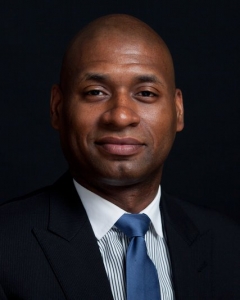It probably had something to do with all the ideological softballs thrown his way during his speaking event at our school a few weeks ago, but by the end of the night, Charles Blow’s comfort with a friendly audience steered him to say something intriguing. Towards the end of the lecture, Mr. Blow fielded a question that led him to declare what he considers to be one of the constitutional crises of our time: the fact that less than a majority of our voting populace can vote for a presidential candidate, and that he or she can still be elected as the leader of the free world. Of course, what Mr. Blow was referring to is the fact that Hillary Clinton received over two million more votes than Donald Trump and was not rewarded the presidency. While I believe Mr. Blow would be singing a different tune had Mrs. Clinton won the electoral college with less than a majority of the popular vote, this is not what piques my interest.

As Mr. Blow told it, politically and culturally like-minded individuals are increasingly moving into areas together; Democrats and liberals to urban/suburban areas, Republicans and conservatives to rural ones. He went on to suggest that this meant Democrats are getting a raw deal when it comes to electoral politics, because they are concentrating all of their votes in small geographic areas and essentially watering down their vote. He is hardly the first person to subscribe to this “Big Sort” idea, and while I think it is an oversimplification, I agree with the general premise of the argument. His remedy to this, which a sizable chunk of the left—and surely the right if they had been on the losing end of last year’s presidential campaign—believes to be the proper diagnosis, is to change our electoral system. While he did not explicitly say that we should get rid of the electoral college, this seemed to be the insinuation. However, perhaps changing how we elect our officials is not the proper remedy; maybe we should change our relationship with the government and how we view it, instead of fundamentally altering the Constitution.
Like a significant number of Americans, I am very concerned about what a Trump Presidency might still bring. However, when I think about why I have this concern, it has less to do with the man than the immense power that comes with leading the federal government. Anybody who paid attention to Barack Obama’s Presidency and to a lesser extent, his predecessor’s, saw just how much power they wielded. Now, a man who should never be anywhere near this kind of power is in control. The state of hysteria that the media and the left have been in for a year concerning Republican control over the Presidency and Congress is due to the power that the Federal government holds. The right would be in a similar state of hysteria if Mrs. Clinton had been elected, and/or if the Democrats had control over Congress.
Perhaps rather than drive ourselves crazy about who controls the government, maybe we should focus on what the government is allowed to control. One of the easiest ways to alleviate the growing state of tribalism and dysfunction that currently exists in our political system and culture, is to reduce the size of government. This way, every time the presidency, house, or senate flips—as they seem to do with increasing frequency—we are not losing our minds when our tribe isn’t in control. The answer is not to change the Constitution, but to lean on it more heavily, and reduce the arbitrary power in Washington that has consistently grown each decade since the early 1900’s.
While many will consider this argument to be “conservative” in nature, it is actually one that would suit many liberals at this point in time. You don’t like how undemocratic it seems that Mr. Trump got elected? Consider subscribing to the limited government point of view, because the larger government becomes the less democratic and accountable it becomes. Furthermore, if the right is as crazy as the left suggests, they should be extremely interested in reducing the power of government, given the right’s choke-hold on Gubernatorial offices and state legislatures across the country.
This idea should work for people of all ideological backgrounds, aside from socialists. When we remove the government from places that it does not obviously need to be, the market and mediating institutions (voluntary organizations, churches, the media, etc) take over. The beautiful thing about the market is that it provides multiple choices and is unbiased when it picks winners and losers. Furthermore, unlike the government, mediating institutions allow citizens to pick what best suits them. Any market—be it the marketplace for ideas, kept alive by the First Amendment, the market for environmental sustainability, or the traditional market for products—will ultimately find an equilibrium as long as it is not interfered with. While there are places where the government must involve itself, such as with the regulation of the environment, or with business trusts, there are other places that it simply does not belong. Currently, any time there is an inefficiency in a market, many Americans want to turn to the government to solve the problem. However, when there is a government inefficiency, we don’t apply the same scrutiny, and often just double down on the overreach, instead of trying to reverse the trend.
We will all be much more comfortable with members of ideological affiliations unlike ours, in power, if we rely on the rules, laws, and amendments that have successfully governed us for so long, rather than expanding the reach of government to assist our ideological affiliations each time we find ourselves in power.
